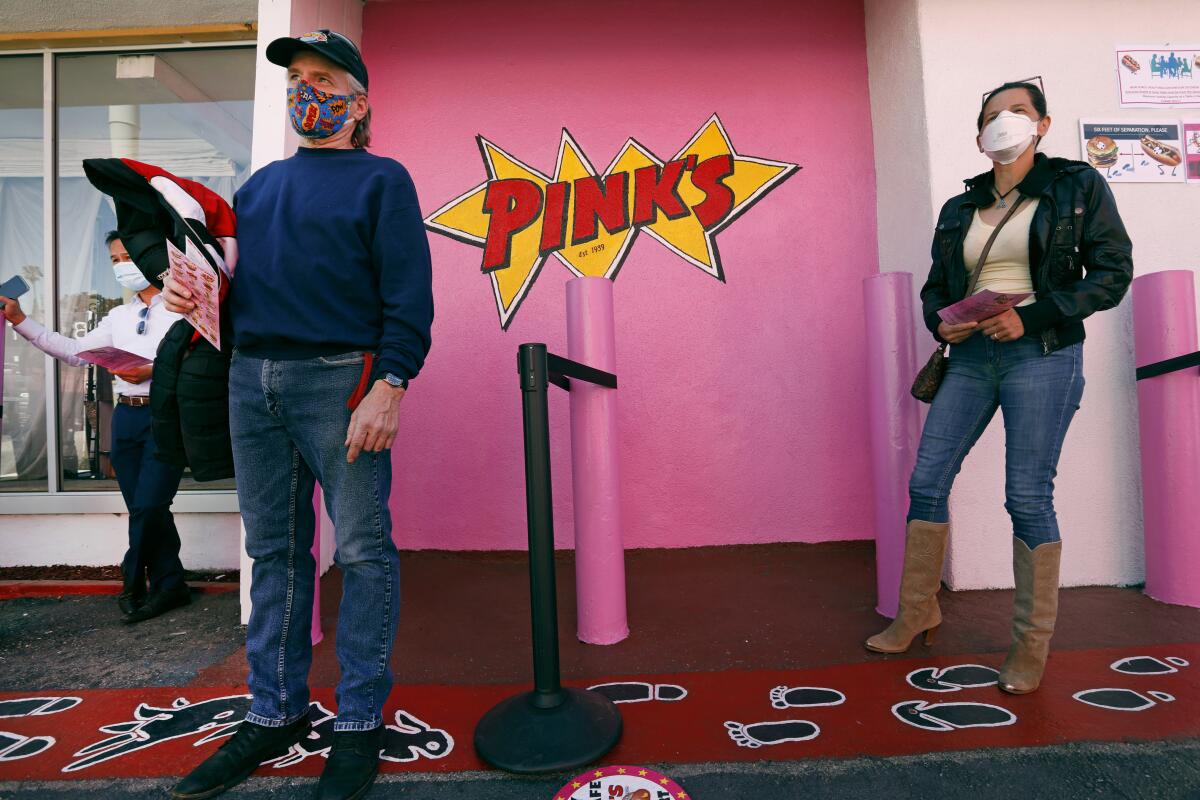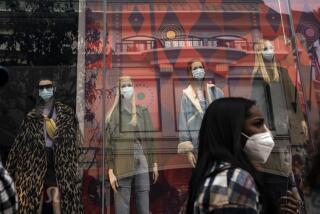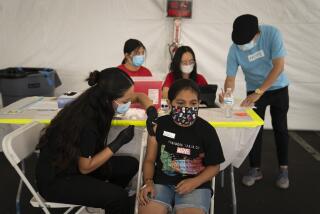Op-Ed: Why we are more cautious when there’s light at the end of the tunnel

After a year in which good news has been hard to come by, recent developments on the pandemic front are bound to elicit more joy than the coming arrival of spring. The availability of effective vaccines tops the list of good news.
Another dose of good news is that, along with continuing mask use, there has been an uptick in the number of people staying home and avoiding restaurants, and a reduction in gatherings of 10 or more people in much of the United States that began in mid-November, according to data tracking by USC. It seems that a technological breakthrough has been met by an improvement in human behavior among a wide swath of the U.S. population (young people on spring break being one apparent exception).
These developments have led to a steep decline in case totals across much of the country, including California, which is at around 2,600 new cases a day, down from more than 40,000 in early January.
Why did many people who were initially reluctant to follow COVID-19 guidelines get on board with the recommendations of health experts? After all, as the COVID-19 vaccines became available, one could have imagined previously noncompliant people becoming even less compliant.
The vaccines could have been considered something of a magic bullet, making preventive measures such as mask-wearing and social distancing seem unnecessary as a defense. People might therefore have been less likely to comply with the inconvenience of those measures. Yet it appears the opposite happened. As soon as vaccine approval appeared imminent, the percentage of the population saying that it was taking precautions increased.
There is some compelling psychology at play here, psychology that plays out in many areas of everyday life. Take your standard action movie. When a minor character says something like “I’m leaving the police force” or “This is my last mission; I’m calling it quits,” the audience knows what’s going to happen. That character has just been handed a death sentence. The screenwriter is intensifying the grief to come by putting the character almost out of harm’s way. The death seems more tragic because it nearly didn’t happen.
This shows that we don’t simply react to what has happened; we react to what easily could have happened as well. That is why Olympic silver medalists are generally less happy than the bronze medalists they just outperformed. The silver medalist must deal with having almost won the coveted gold medal; the bronze medalist came close to having no medal at all.
That is also why people are reluctant to give up a lottery ticket they purchased, even when offered a cash incentive to do so: They can easily imagine how bad they’d feel — and how hard they’d kick themselves — if the ticket they gave up ended up winning.
This dynamic may also play into people’s decisions about following pandemic guidelines.
Getting deathly ill is a tragedy under any circumstances, but especially so when it “didn’t have to happen.” People are more inclined to take precautions when they know that help is on the way and they’re almost out of danger.
Stated differently, some people who refused to keep social distance or were lax about mask-wearing may have acted out of a type of fatalism — the kind of thinking that could cause someone to say, “If my number’s called, so be it. I’m not going to stop living by trying to prevent it.”
But knowing that they will soon be able to get a vaccine can counteract such fatalism. People understand that they would feel foolish getting ill just before they could get vaccinated, and they may also worry that others will think they’re foolish too. So why risk it, they reason — making them more open to complying with public health recommendations.
The psychology behind this “near-miss” effect could be harnessed to increase compliance even further. Health officials could encourage this kind of thinking by putting out messages that tell people “a return to your old life is just around the corner.” The closer people feel to an end of this crisis, the more likely they will change their behavior to make that come true.
Thomas D. Gilovich is a professor of psychology at Cornell University. William Schulze is a professor of applied economics and management at Cornell.
More to Read
A cure for the common opinion
Get thought-provoking perspectives with our weekly newsletter.
You may occasionally receive promotional content from the Los Angeles Times.










